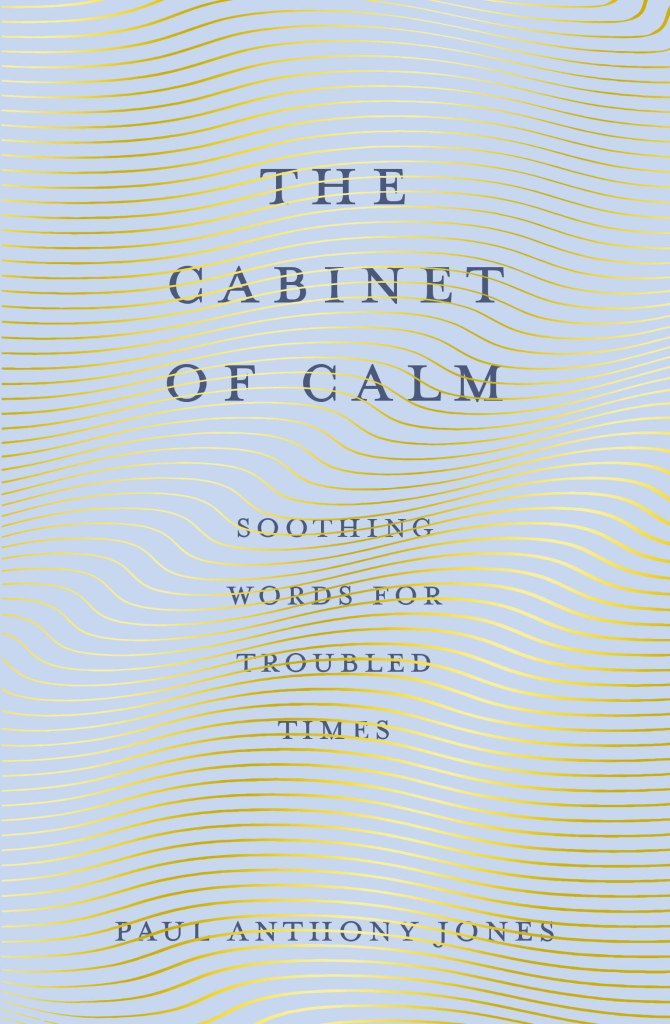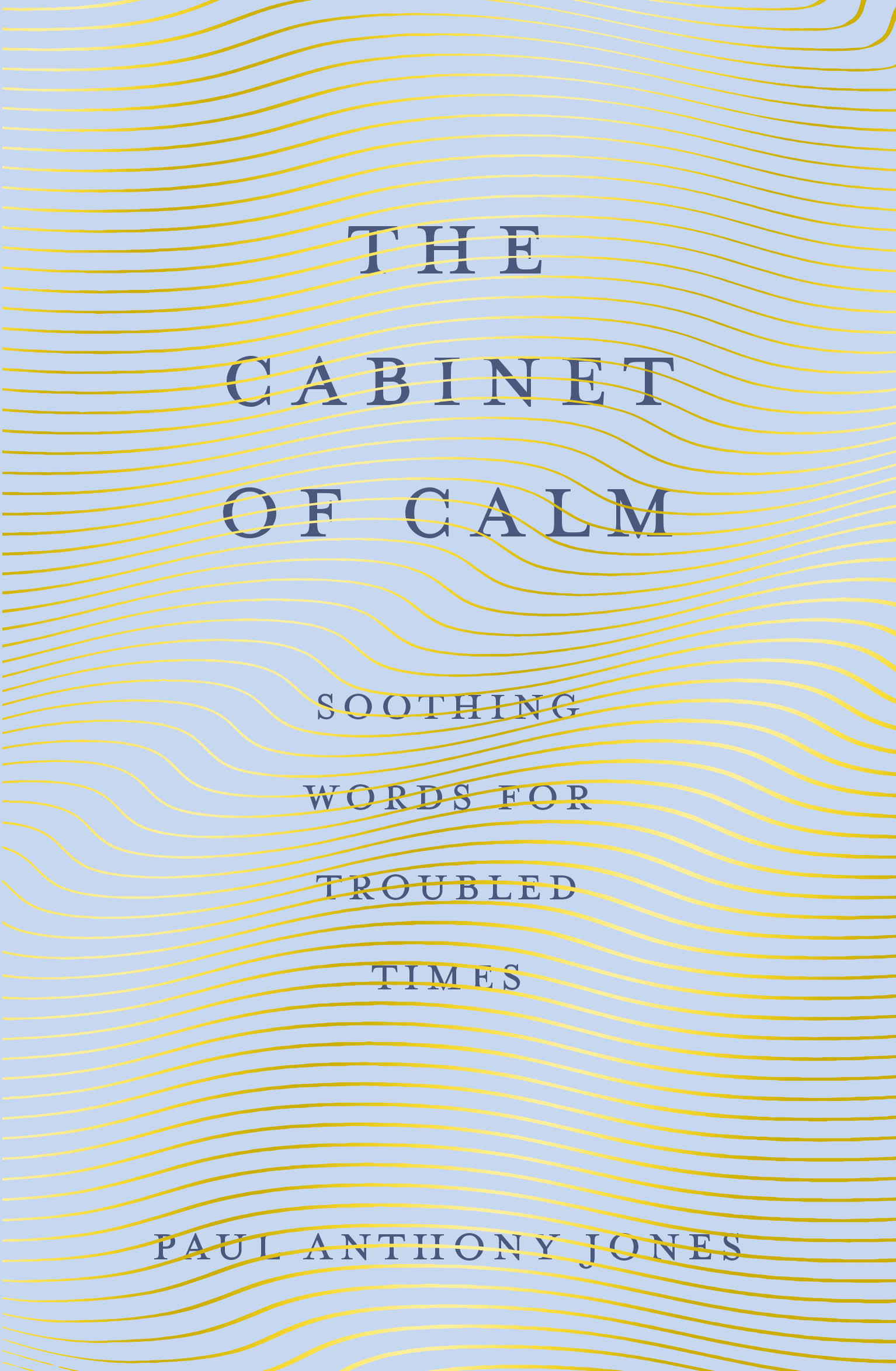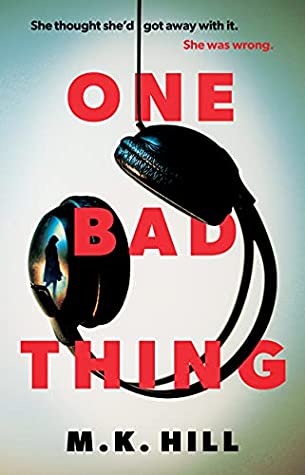
This book lists a collection of lesser known, very infrequently used words and provides a definition for each, as well as a history of the word. So many of the words included seem to speak to our everyday experiences just now as we go through this worrying time, with many of us confined to home and unable to see loved ones as we would want to.
The Cabinet of Calm is a fascinating book which would be ideal to dip in and out of. As well as lots of detail about the etymology of each word and its usage in the past, there are also information about similar or related words as well as really interesting little anecdotes. Whatever thought or feeling perturbs you in difficult times, there’s likely to be an entry for an appropriate word in this book. It’s a wee gem of a book and sure to be enjoyed by anyone with an interest in words and where they come from.
Written with a lightness of touch, The Cabinet of Calm shows us that we’re not alone. Like language, our emotions are universal: someone else has felt like this before and so there’s a word to help, whatever the challenge.
The Cabinet of Calm has been designed to be picked up whenever you need a moment of serenity. Just select the emotion listed that reflects whatever you’re feeling and you’ll be offered a matching linguistic remedy: fifty-one soothing words for troubled times.
“Every word in this collection is about being kind to ourselves and others, curing and calming our worries and problems, restoring hope and maintaining positivity.”
From ‘melorism’ to ‘stound’, ‘carpe noctem’ to ‘opsimathy’, these kind words – alongside their definitions and their stories – will bring peace, comfort and delight, and provide fresh hope.
In May last year, I reviewed the hardback version of this book. Who would have imagined that almost a year on, we’d still be in need of soothing and calming words? I suppose it goes to show that there are always going to be troubled times in our lives when we need to be soothed and calmed. Today the book is published in paperback and I’m pleased to share my review again. Having re-read my review, I have hardly had to change a word – it is all still so apt!
“Based on its earlier meaning of a short twinge or momentary pain, in some Scots and northern English dialects the word stound came to be used of a sudden pang of grief and sadness when a loss – at the time, no longer at the forefront of our mind – is suddenly remembered. This will be a feeling familiar to anyone who has ever endured a loss: as time moves on and the initial pain diminishes, grief can be sparked back into action, often provoked by only the least likely or most superficial of things.
If ever we needed some soothing words, it is surely in these troubled times we find ourselves living in. I expect the author had no inkling of just how apt some of the words he has included in this book would be by the time it made its way out into the world.
My personal favourite word from the book is agathism – for when you’re feeling disillusionment or struggling to remain positive. It’s a word that describes the state roughly between optimism and pessimism and reminds us that although things may be difficult right now, they will be brighter in the future. We should focus on the good times which will eventually return.
So much more than a book of words, The Cabinet of Calm will soothe your soul and ease your mind. It’s the perfect gift.
The Cabinet of Calm is a fascinating book which would be ideal to dip in and out of. As well as lots of detail about the etymology of each word and its usage in the past, there are also information about similar or related words as well as really interesting little anecdotes. Whatever thought or feeling perturbs you in difficult times, there’s likely to be an entry for an appropriate word in this book. It’s a wee gem of a book and sure to be enjoyed by anyone with an interest in words and where they come from.
Written with a lightness of touch, The Cabinet of Calm shows us that we’re not alone. Like language, our emotions are universal: someone else has felt like this before and so there’s a word to help, whatever the challenge.
The Cabinet of Calm has been designed to be picked up whenever you need a moment of serenity. Just select the emotion listed that reflects whatever you’re feeling and you’ll be offered a matching linguistic remedy: fifty-one soothing words for troubled times.
“Every word in this collection is about being kind to ourselves and others, curing and calming our worries and problems, restoring hope and maintaining positivity.”
From ‘melorism’ to ‘stound’, ‘carpe noctem’ to ‘opsimathy’, these kind words – alongside their definitions and their stories – will bring peace, comfort and delight, and provide fresh hope.
In May last year, I reviewed the hardback version of this book. Who would have imagined that almost a year on, we’d still be in need of soothing and calming words? I suppose it goes to show that there are always going to be troubled times in our lives when we need to be soothed and calmed. Today the book is published in paperback and I’m pleased to share my review again. Having re-read my review, I have hardly had to change a word – it is all still so apt!
“Based on its earlier meaning of a short twinge or momentary pain, in some Scots and northern English dialects the word stound came to be used of a sudden pang of grief and sadness when a loss – at the time, no longer at the forefront of our mind – is suddenly remembered. This will be a feeling familiar to anyone who has ever endured a loss: as time moves on and the initial pain diminishes, grief can be sparked back into action, often provoked by only the least likely or most superficial of things.
If ever we needed some soothing words, it is surely in these troubled times we find ourselves living in. I expect the author had no inkling of just how apt some of the words he has included in this book would be by the time it made its way out into the world.
My personal favourite word from the book is agathism – for when you’re feeling disillusionment or struggling to remain positive. It’s a word that describes the state roughly between optimism and pessimism and reminds us that although things may be difficult right now, they will be brighter in the future. We should focus on the good times which will eventually return.
So much more than a book of words, The Cabinet of Calm will soothe your soul and ease your mind. It’s the perfect gift.
Although it’s just possible you may be familiar with some of the words in the book, you will undoubtedly learn some new ones such as ‘stound’, a word for the pangs of emotion you can feel when you’re grieving. Here is the entry for stound from the book.
My thanks to Alison Menzies for my review copy of the book. The Cabinet of Calm is published by Elliott & Thompson books and now available in all formats. If you are able to support an independent bookshop at this time, please do. Otherwise, there are buying links on the publisher’s website here: The Cabinet of Calm
Paul Anthony Jones is the author of several books on trivia and language including The Cabinet of Linguistic Curiosities, The Accidental Dictionary, Word Drops, The British Isles: A Trivia Gazetteer, Haggard Hawks & Paltry Poltroons and its sequel, Jedburgh Justice & Kentish Fire. He appears regularly in the Telegraph online, BBC Radio 4’s World at One, Buzzfeed, the Huffington Post and Mental Floss, and has contributed to the Guardian, Independent and Oxford and Cambridge dictionaries online. He also runs @HaggardHawks, the hugely popular language-based Twitter account and YouTube channel. He lives in Newcastle upon Tyne.
Knowing that there is a word for this sudden and painful pang of grief is comforting in itself. Knowing that the word has been in use in this context since the nineteenth century is heartening, as it proves that this painfulness is nothing new. Knowing that someone else – at some place and some time in history – thought this phenomenon meaningful enough to warrant its own word proves perhaps the most comforting fact of all: in grief, we are by no means alone.”
Sometimes we all need a little reminder that it’s going to be okay… Open The Cabinet of Calm to discover a comforting word that’s equal to your troubles.
About the author
There’s interfulgent – for when you are feeling bleak or you lack hope, a word which describes anything that shines through and offers hope. Self–soothe – for when you are having trouble sleeping, a common problem for many just now I’m sure. If you self-soothe, you calm your mind and send yourself peacefully off to sleep. Then there’s angel-visits – a word to think about when you are missing your friends. Angel-visits are meetings with friends which happen too infrequently and I think we can all identify with that just now.
My thanks to Alison Menzies for my review copy of the book. The Cabinet of Calm is published by Elliott & Thompson books and now available in all formats. If you are able to support an independent bookshop at this time, please do. Otherwise, there are buying links on the publisher’s website here: The Cabinet of Calm
Paul Anthony Jones is the author of several books on trivia and language including The Cabinet of Linguistic Curiosities, The Accidental Dictionary, Word Drops, The British Isles: A Trivia Gazetteer, Haggard Hawks & Paltry Poltroons and its sequel, Jedburgh Justice & Kentish Fire. He appears regularly in the Telegraph online, BBC Radio 4’s World at One, Buzzfeed, the Huffington Post and Mental Floss, and has contributed to the Guardian, Independent and Oxford and Cambridge dictionaries online. He also runs @HaggardHawks, the hugely popular language-based Twitter account and YouTube channel. He lives in Newcastle upon Tyne.
Knowing that there is a word for this sudden and painful pang of grief is comforting in itself. Knowing that the word has been in use in this context since the nineteenth century is heartening, as it proves that this painfulness is nothing new. Knowing that someone else – at some place and some time in history – thought this phenomenon meaningful enough to warrant its own word proves perhaps the most comforting fact of all: in grief, we are by no means alone.”
Sometimes we all need a little reminder that it’s going to be okay… Open The Cabinet of Calm to discover a comforting word that’s equal to your troubles.
About the author
There’s interfulgent – for when you are feeling bleak or you lack hope, a word which describes anything that shines through and offers hope. Self–soothe – for when you are having trouble sleeping, a common problem for many just now I’m sure. If you self-soothe, you calm your mind and send yourself peacefully off to sleep. Then there’s angel-visits – a word to think about when you are missing your friends. Angel-visits are meetings with friends which happen too infrequently and I think we can all identify with that just now.

From the back of the book








